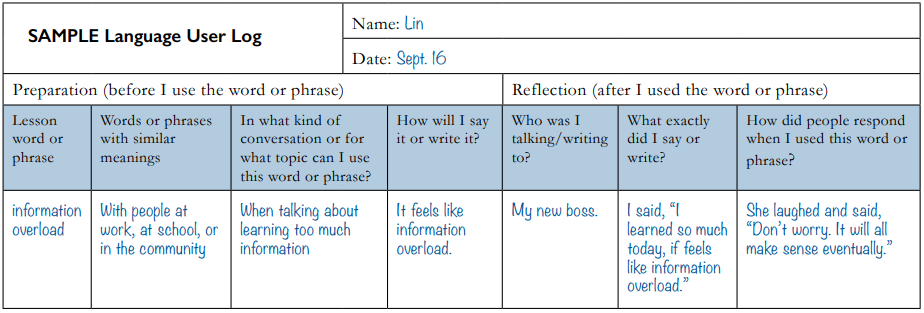Appendix 3: Strategy Coach Tips
47 Chapter 2: Strategy Coach Tips
2.1 Strategy Coach Tip
Scanning for information 
When people read texts, they use different strategies for reading, depending on their purpose. If the reader is looking for specific information in the text, they will scan the text.
To scan a text for specific information:
- Make sure you know what information you are looking for. For example: You want to find information about adult computer classes for Microsoft Word.
- Think of keywords related to what you are looking for. For example: adult, computer, learn, course, instruction, skills, learning, Microsoft Word.
- Check the text features, including the title, table of contents, headings, bulleted points, and images, to see if any of your keywords appear there.
- When you find keywords, read the text around them to see if the information you are looking for can be found there. For example: Quickly look over the title and headings in the text for the keywords above. If you see one or more of them, read the text around each keyword to see if you can find information about the classes you are looking for.
- If the information you are looking for is not there, think of other related keywords and start again.
2.2 Strategy Coach Tip
Guessing new words 
Checking the meaning of every word that you do not understand in a text will slow you down. You can use the other words in the text to guess the meaning of a word you don’t know. This is a very important strategy to develop. Look at the words in the sentences before and after the word that you do not know for clues to help you guess its meaning.
2.3 Strategy Coach Tip
Identifying keywords 
Reading the questions before you listen helps you to predict what the listening will be about. It also helps you identify important information. When you read the questions, you will see key vocabulary words related to the listening. While you are listening to the excerpt, when you hear these words, you will know to play close attention to the information around them.
2.4 Strategy Coach Tip
Facts vs. opinions 
A fact is something that can be proven right or wrong.
An opinion is the way someone thinks or feels about something or what someone believes about something.
For example:
To work in Canada, you must have a Social Insurance Number.
- This is a fact. You can find this information on the Government of Canada website.
Working in Canada is difficult.
- This is an opinion. This statement describes how someone feels about working in Canada.
2.5 Strategy Coach Tip
Writing a description of an event 
One way to write descriptions of past events for work or legal purposes is to organize things in a clear, sequential order. It is important to make sure that the information you include is factual. View a short lesson on this.
Purpose
- Sometimes in the workplace, it is necessary to describe an event that has already occurred.
- Use the following process to write a description of an event.
- Since the event has already happened, remember to use the past tense.
Prepare
- Think about the event.
- Think about the details of what happened.
- Determine which details are facts and which ones are opinions.
- Use the facts for your description.
Three Parts
- The description can be divided into three parts:
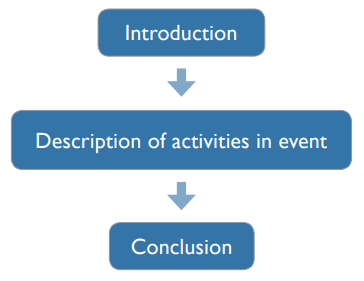
Introduction
- The introduction should begin with a brief statement of what happened.
- State who was involved.
- State the date, time, and location of the event.
Description
- Describe each step, or activity, that happened during the event. State the facts, not opinions.
- List the steps/activities chronologically (in the order that they happened at the time).
- Include any details for each step/activity.
Conclusion
- Finish the description with the results of the event and any follow-up action that was taken.
2.6 Strategy Coach Tip
Sentence stress 
When you hear people speaking out loud, sentence stress creates the rhythm of their speech.
The words that are stressed in a sentence are the content words.
Content words are the words in a sentence that give it meaning. If you remove these words, the sentence will not make sense. They are usually the nouns, verbs, adjectives, and adverbs in a sentence.
The other words in a sentence are called function words. These words give the sentence its form or structure. If you remove these words, you can probably still understand the sentence, even though it won’t sound grammatically correct.
2.7 Strategy Coach Tip
Summarizing 
When you need to share information that you have read, it is important to know how to summarize.
A summary focuses on key points. To identify key points and information for your summary, look at the title and headings. What is the main idea? What information supports or explains the main idea? Leave out extra details.
When you read new information that you will need to summarize, follow these steps to make the process easier:
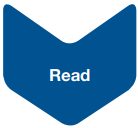 |
|
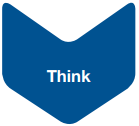 |
|
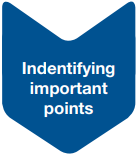 |
|
 |
|
2.8 Strategy Coach Tip
Learning new vocabulary 
Learning a language doesn’t only happen in a classroom. One of the best ways to learn how to use new words and expressions is to log, or record, how people use these words in daily life. Try to use the new words yourself, and keep track of how you use them. The more you use the new words, the easier they will be for you to remember and understand.
There are two kinds of language logs to help you develop your vocabulary:
1. Language Observer Log: In this log, you can record where you heard or read the word or phrase. Read this sample Language Observer Log and discuss it with your instructor or classmate.

2. Language User Log: In this log, you can record how and where you used the word or phrase. You can also analyze how you used it. Read this sample Language User Log and discuss it with your instructor or classmate.
